Men’s Tailoring: More Than a Fashion Trend for Italian Brands
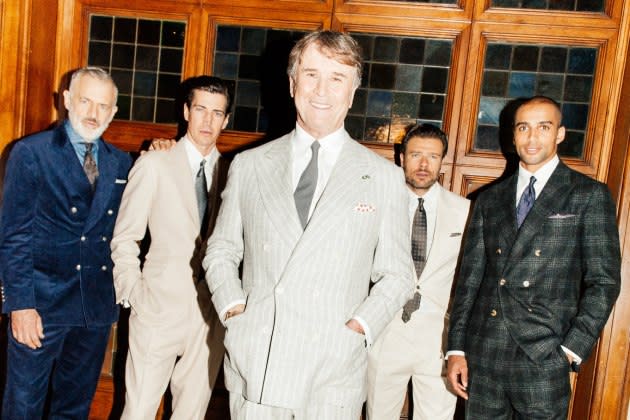
MILAN — In the words of Giorgio Armani, “tailoring, apparently so connected to the past, is, on the contrary, the future.”
The evolution of menswear tailoring is not only a fashion statement, but also a chance to reenergize several Italian sartorial companies that have weathered the streetwear craze over the past few years and to offer new employment opportunities as the country faces a generational handover. Italy’s association Unioncamere expects between 63,000 and 94,000 new hirings of specialized professionals by 2026 in a country that counts 66,000 companies across the fashion industry.
More from WWD
Brunello Cucinelli has long been underscoring that the problem over the coming years “will not be identifying the customer, but those who will make the garments.”
“The men’s jacket is one of the most difficult things to realize and it takes at least three years to become a good tailor, creating the perfect armholes and shoulder area, to make men feel good in their suits,” said Cucinelli, praising the unique skills of Italian tailors. “They are special, and for this reason, training the next generation of artisans is key.”
To wit, Cucinelli is not only expanding his namesake company’s factory in Solomeo, but is also building a new plant in Penne, in Italy’s Abruzzo region, historically a production hub that specializes in sartorial menswear, which he compared to Maranello for the production of Ferrari luxury cars. Penne tailors, he contended, “are the best in the world with the Neapolitans.”
The factory will be completed in spring 2025 and will occupy an area of 48,600 square feet, employing around 350 artisans. Pending the completion of the new plant, operations started in a leased factory with 75 full-time workers, with the goal being 100 employees by the end of 2024. Cucinelli also has a “school of crafts” and several Italian companies have their own training schools, from the Tod’s Group with the Bottega dei Mestieri to Bottega Veneta, Fendi and Prada, to name a few.
Giving dignity to the work of artisans, offering a fair salary and the opportunity to work in beautiful factories has been a key goal for Cucinelli and other entrepreneurs, including Antonio De Matteis, chief executive officer of Kiton. So much so that the Neapolitan brand and Milan’s Triennale museum have joined forces to spotlight the importance of craftsmanship and the training of a new generation of tailors with a showcase that will coincide with Milan Men’s Fashion Week.
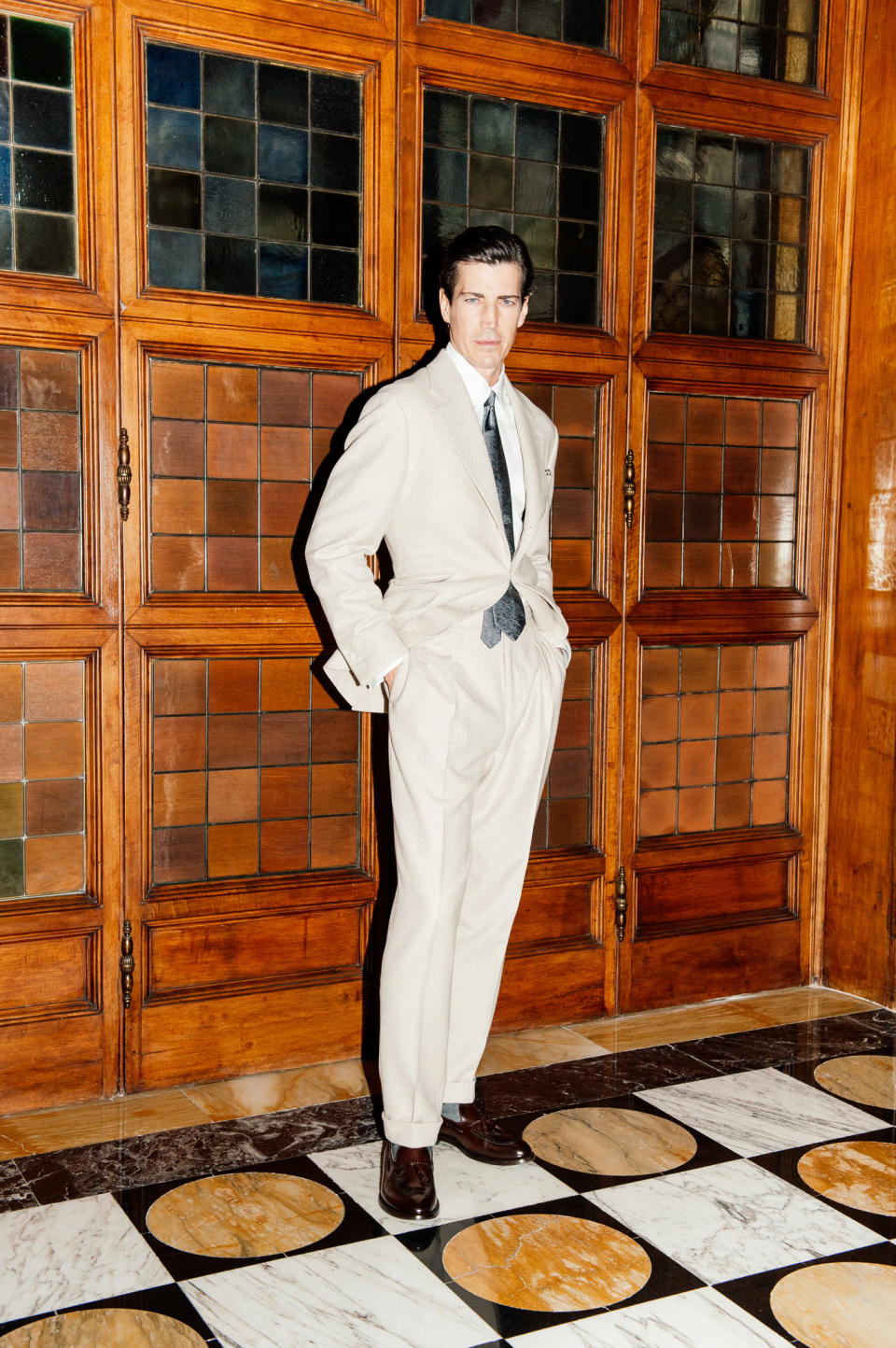
Running from Friday to Tuesday at the museum, the “Tailoring School. A Journey Into Education” will celebrate Kiton’s in-house academy and involve its current class of students.
Housed at the company’s headquarter in Arzano, five miles from Naples, the Kiton Tailoring School was launched in 2000 and offers a three-year course taught by in-house teachers.
“Training is not a marketing tool but an investment that entrepreneurs must subscribe to as a social responsibility,” De Matteis said. “We must give dignity and value to learning a skill and a profession with the addition of an economic recognition.”
He contended that the perception among new generations has changed. “They have understood that if they learn a craft, they can have a professional future.”
Tailoring, “as the expression of Italian savoir faire, is fundamental,” said Armani, a legend in the evolution of the sartorial look whose fashion vision is entirely in sync with the current trends.
“Today more than ever I am convinced that we must forego any exaggeration and opt for sobriety, a term that has always been associated to my collections. I believe this is the most radical choice you can make,” Armani said. “The ability to read the surrounding world is fundamental for a designer, perceiving its needs and transformations. I did it early on and I continue to do so now at a time where there is not only a desire but also a need for authenticity.”
Armani continued by saying that he was “not convinced that the idea of quiet luxury is the answer. I believe, rather, that in being calm lies the strength, also in fashion,” added the designer, who shuns the frenzy of fashion and fading trends and has long championed durable, quality garments.
“My aspiration has always been to create a dialogue between the body and the clothes that must complete the personality of the wearer. The sartorial work done with softness is perfect in this sense, and is timeless. For this reason, I think that tailoring, apparently so connected to the past, is, on the contrary, the future.”
Similarly, Massimo Alba said he’s always believed in tailoring being modern and not merely a current trend, focusing over the years on fabric research, evolving sartorial looks “in a light and soft natural way,” as men themselves evolved.
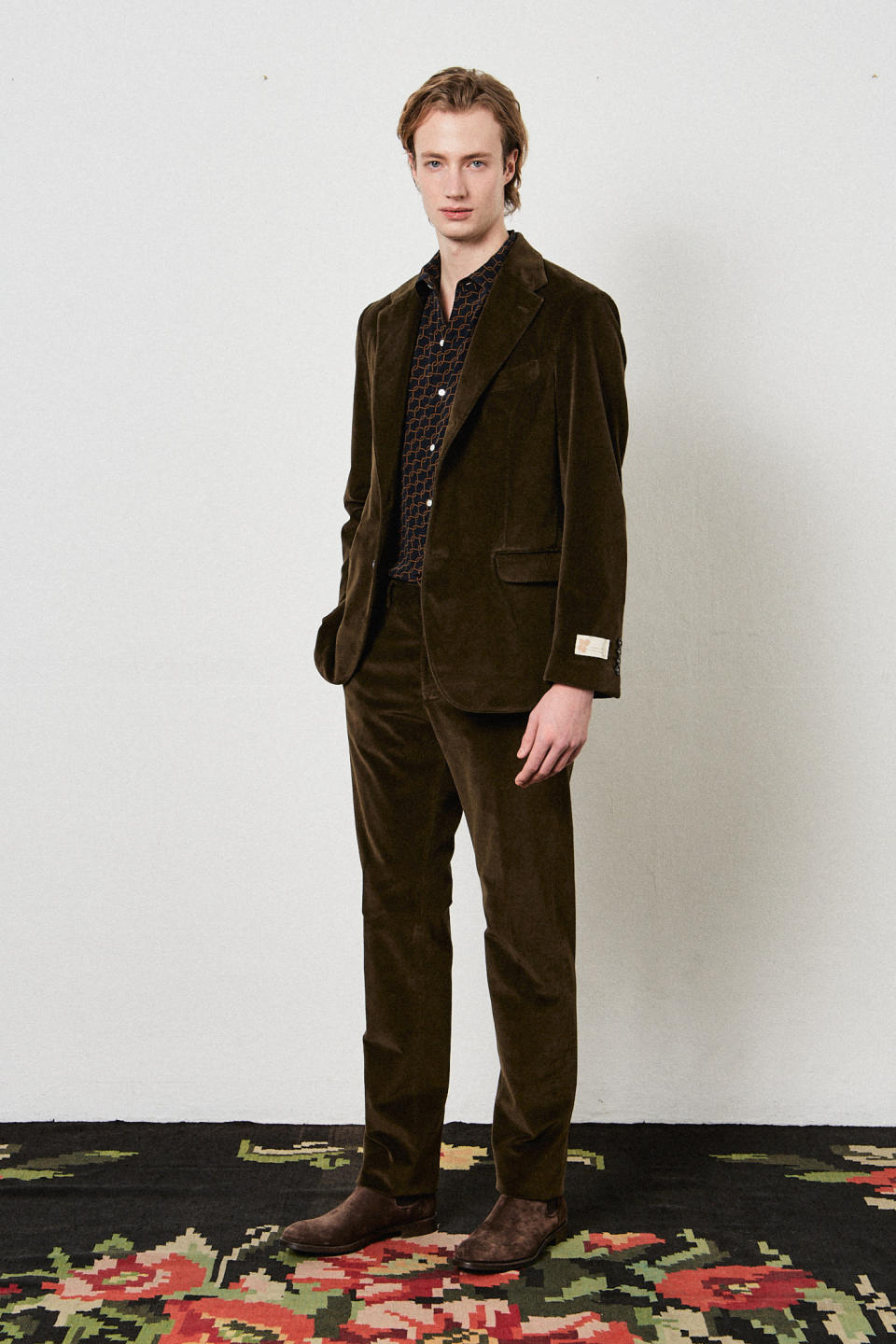
As an example, the designer said the fact that Daniel Craig requested to wear Massimo Alba looks playing James Bond in “No Time to Die” reflects 007’s “new psychological identity, not the arrogant womanizer” of yore, but the man “who dies as a romantic hero, becoming a fragile icon, a man that now needs to be recognized in his intimacy and fragility, and no longer identified with the structured, three-piece power suit.”
This kind of tailoring is what appeals to the younger generations, Alba opined. “The streetwear trend is fizzling out, and tailoring is being reinterpreted in a less formal, more sentimental way.”
He believes customers want to personalize their clothes and feel that they are their own, not a reflection of a designer brand. “My need is not to feel protected by a uniform but in contact with my emotions and my feelings, free from rigid codes. This is a natural attitude, as is the idea of fragility that we should be able to express, with no need to hide. The concept of a man in a uniform does not belong to me.”
Also, Alba lamented the use of words he defined as old, such as deconstructed or informal, as “part of a serial industrial culture” that no longer exists.
Stefano Canali, president and CEO of the Canali Group, also believes that as the landscape evolves, “the traditional boundaries between formalwear and leisurewear have faded. With the merging of these domains, versatility and comfort become integral aspects of sartorial expression. The concept of quiet luxury — or whispered luxury, as we call it — aligns seamlessly with our philosophy.”

Agreeing with Alba, he said there is a shift as men “seek garments not just as expressions of their personality and uniqueness, but as vehicles for self-expression through clothing, also in terms of values,” and Canali’s entirely Italian sartorial construction “unites ethics with aesthetics.”
Durability, customization and made to measure remain “paramount.”
The “revival” of tailoring in menswear “is not just a trend but a fascinating evolution, particularly when one grasps the differences between formalwear and sartorial craftsmanship. In our narrative, where the culture of sartorial finesse has been ingrained for nearly nine decades, tailoring extends beyond the boundaries of formality; it’s an artisanal construction intricately woven into the entire male wardrobe, blending Italian craftsmanship and design with the highest quality fabrics and an unwavering attention to detail,” Canali concluded.
Staying true to the brand’s legacy is also rewarding brands such as Caruso, which has “seen a strong return of demand for our core product, the sartorial jacket, with our brand doubling in size in four seasons: a recognition of authenticity and a prize for never stopping believing in it,” said Marco Angeloni, president and CEO of the brand, which last month appointed Max Kibardin its new creative director.
Caruso is controlled by Lanvin Group, which, as reported, registered a 33.6 percent gain at the Italian menswear brand, buoyed by the “quiet luxury” trend.
“Demand is now normalizing after the post-pandemic/new trend-driven boom in tailoring but we believe Caruso will keep growing as it earns market share also thanks to its more-than-ever rare high quality and respectful price combination, only possible when backed-up by your own sartorial factory in Italy,” Angeloni said.
“A return to elegant, chic, refined, yet from our point of view not necessarily ‘quiet’ as we also witnessed the success of our ‘playful’ approach to the way we style our looks, we present fresh colors, we evolve in shapes,” he said. “We see a quest for outstanding quality in both make and materials, for a Made in Italy garment that will last a lifetime and yet bring some novelty to one’s wardrobe, some freshness, joy, emotion, and a point of view which is neither shocking nor too classic or understated.”
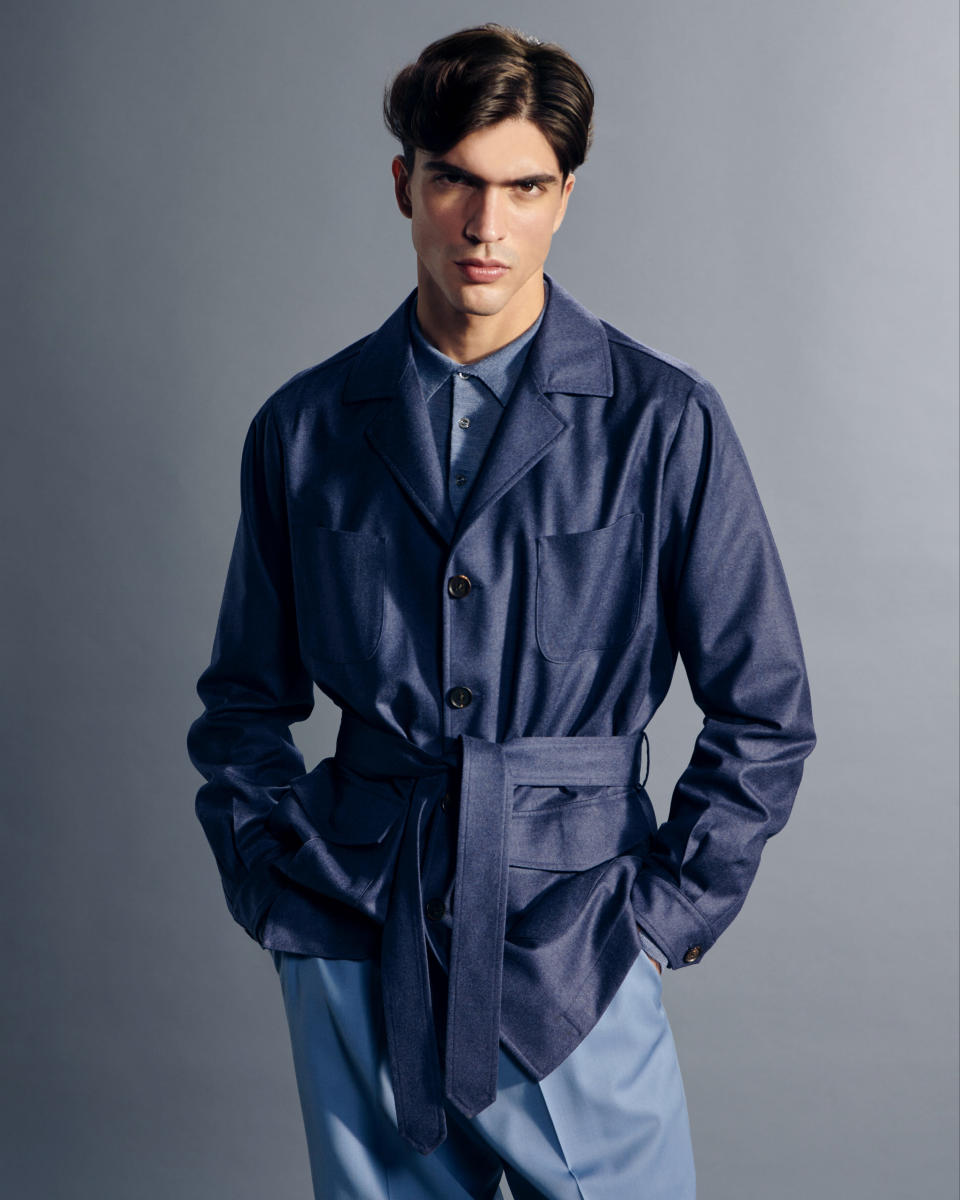
Mehdi Benabadji, CEO of Brioni, said the return to sartorial designs is “meant to last,” and concurred with Canali that it reflects “new societal values of sustainability, personalization, quality and confidence through simplicity” and that “there is a beauty in knowing the individual care your garment received from our artisans.”
Benabadji said Brioni puts “the individual forward, and not the brand, while nonetheless understanding the garment’s intrinsic value, its design, the material choice and its construction,” committing to Italian production through its ateliers in Penne and Curno, “the essence of ‘slow luxury,’ long before the ‘quiet luxury’ expression was invented — and true luxury has to last.”
The return of tailoring is not surprising to Benabadji, “as elegance is back. Clients feel a certain sobriety is appropriate in these times, while there is a higher appreciation of craftsmanship and true luxury that is meant to last. People look to dress closer to their authentic self and value flattering silhouettes.”
Brioni has succeeded in attracting a younger generation, observed Benabadji, as they seek authenticity and subtle detailing. Design director Norbert Stumpfl’s collections enable Brioni customers “to build up their wardrobe over time and add pieces to treasure and combine season after season,” said the executive, adding that this is a worldwide trend.
Stefano Gaudioso Tramonte, style director and visual merchandising manager at Corneliani, said the return to “classic” designs should not be meant as “old, but as attention to beautifully and well made” clothing. It reflects a desire for “refined, but never boring” fashion, which is a reaction “to the excess of casual” looks over the past few years, reaffirming the codes of a more traditional elegance in a modern key. This also marks a renewed attention to quality, craftsmanship and timeless elegance.
“The key word is reinterpretation. It’s not only a way to return to classic, but to reinvent the silhouette, to review the volumes in a modern key, experiment with different fits,” with new colors and precious yet performing fabrics, blending sartorial elegance and comfort with a ‘fresh approach’ to tailoring.”
Corneliani, he said, expresses this tradition in continuous evolution and this return to sartorial designs is “an opportunity that confirms our mission, to be ambassadors in the world thanks to our legacy and our roots, of sartorial expertise made in Italy.”
Gianluca Isaia, president and CEO of Isaia, which for the first time will hold a fashion show in Milan on Sunday, believes that “tailoring never left,” but evolved over the years, especially during the pandemic, when it became “more comfortable, easy but still elegant. The world may have momentarily shifted its focus for a moment, but clearly the customer has fallen back in love with the art of dressing properly and beautifully.”
This reflects the current times. “We believe that tailoring is a mirror of the world we live in and the way people move through it. Changes in waistbands and lapels are influenced by the desire to express ourselves and function within cultural norms,” said Isaia, citing as an example the increased demand for the brand’s jersey tailoring, “which caters to the growing emphasis on comfort and mobility without compromising artisanal craftsmanship. This represents a modern approach to tailoring — updating tradition and setting new standards in the way men dress. Life calls for more moments of confidence and celebration. Nothing in a man’s wardrobe evokes power like the perfect jacket or commands a room like the perfect tuxedo. This is why the art of tailoring is forever.”
Leo Scordo, CEO of Pal Zileri, said the term sartorial does not mean formal, but is rather “an attitude, a concept that translates in a wardrobe that is marked by clean lines and quality fabrics to express an intimate and never extravagant luxury.”
Given their sartorial heritage, Pal Zileri and Corneliani are among the brands that were challenged during the pandemic and by the sportswear trend. Pal Zileri’s production arm Forall Confezioni SpA last summer was sold to fashion manufacturer J6 and other investors, through a newco named Manifattura Veneta. The Pal Zileri brand remained controlled by Qatari fund Mayhoola, owner of Valentino and Balmain. Corneliani in 2022 relaunched with a new company and new refinancing under the control of Bahrain-based fund Investcorp.
The quiet luxury trend is key for Pal Zileri, said Scordo, as it is a brand that has always embraced understated and effortless elegance. He does not see this as a new trend but as an inversion of trends, after years of sweatshirts and sneakers, with customers wishing to wear something “precious that makes them feel well. For Pal Zileri precious is not synonymous with costly and we are always very attentive to the positioning of the outfits and the intrinsic value they represent for the customers.”
Pal Zileri has recently launched the new Linea line of suits and jackets with a sartorial construction, entirely realized in Italy with precious fabrics. The brand is being repositioned in North America, Germany and Benelux thanks to new partnerships, which Scordo is confident will support the brand over the next few years.
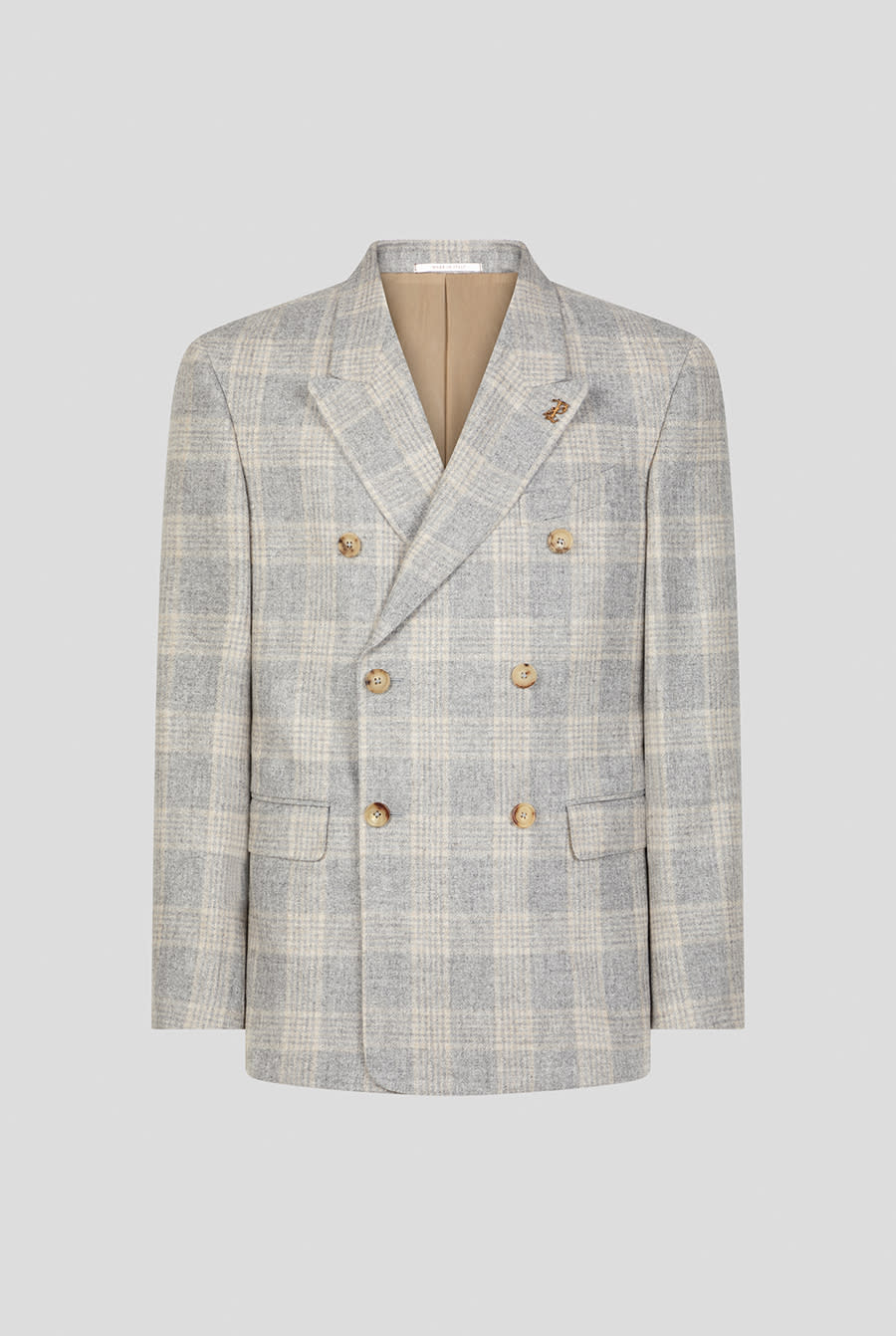
Francesco Russo, CEO of Boglioli, said formalwear has been back for a few seasons, remarking that the brand for fall 2023 sold around 50 percent more suits compared with fall 2022. “It is a trend that is especially tangible, reflected at a commercial level with interesting data,” he said.
It is clearly a welcome trend for Boglioli, as it is in entirely in tune with its heritage and Russo said he was upbeat about the outlook for the year, praising the skills of the artisans at the brand’s Gambara headquarters, a two-hour drive from Milan, who reinterpret the formal looks “through elegant suits and jackets with exceptional quality fabrics and light, soft and current silhouettes.”
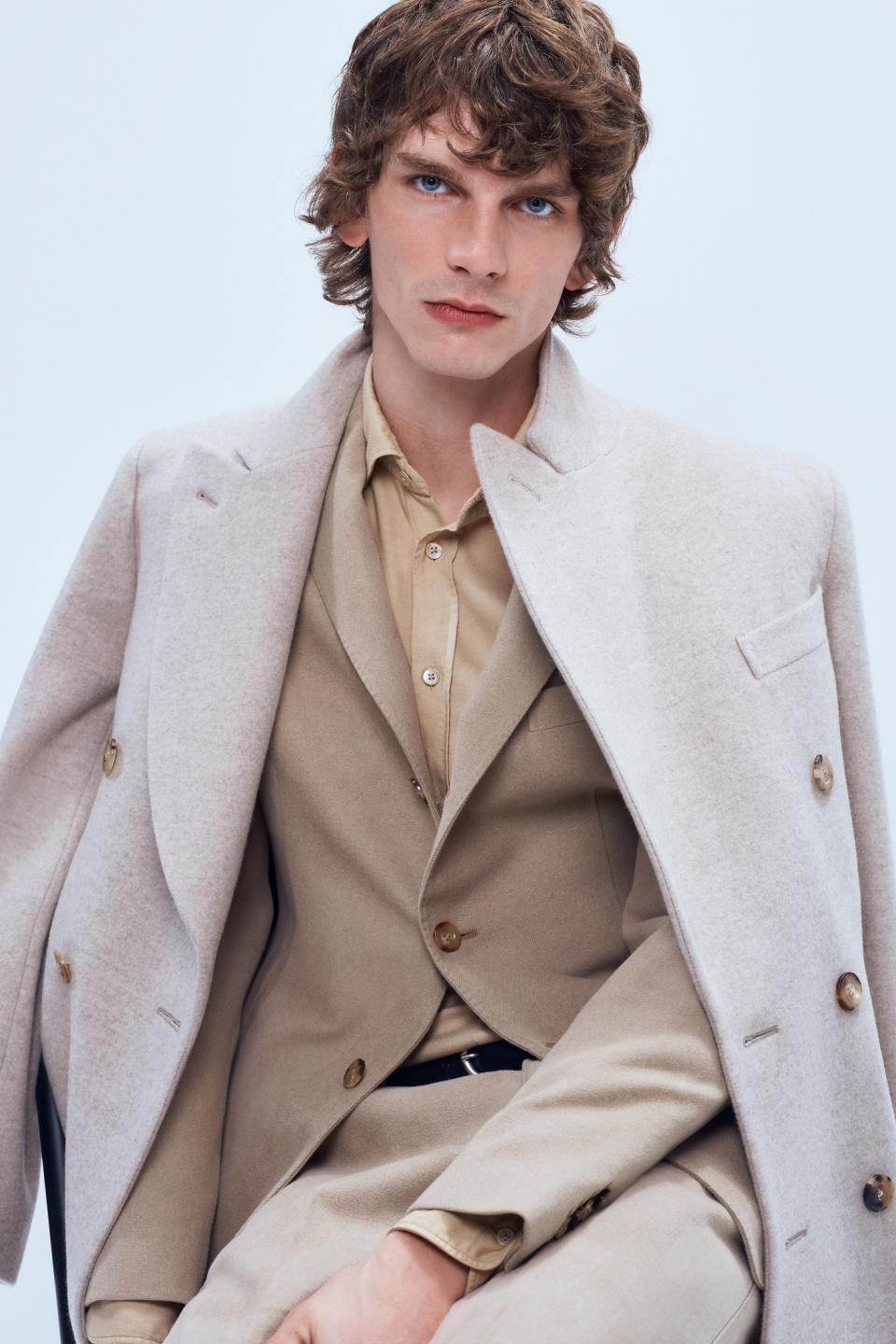
Best of WWD

 Yahoo Movies
Yahoo Movies 
